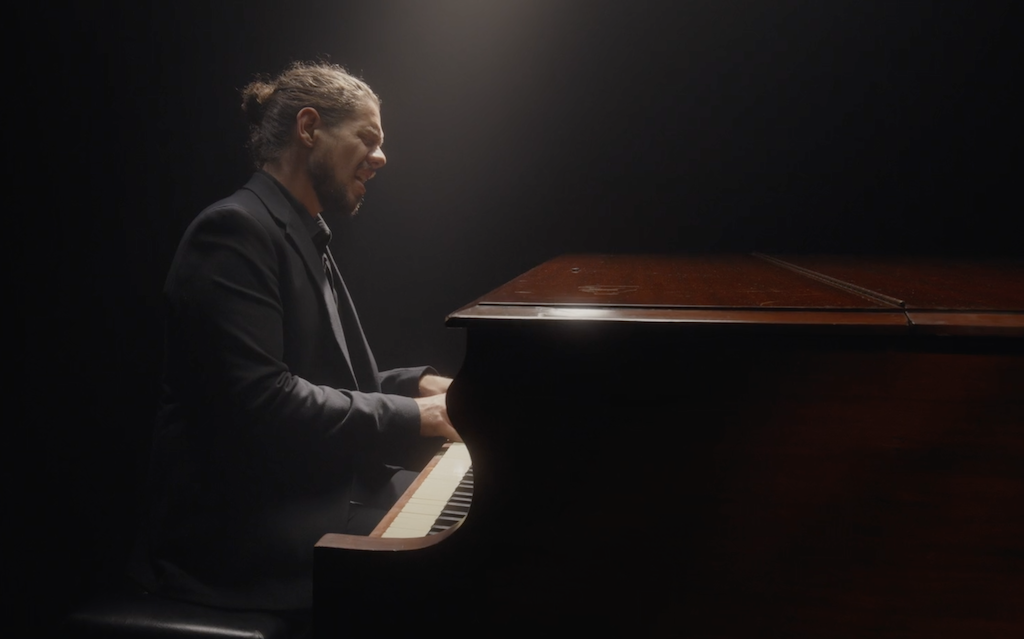The C44 team was honoured this week to produce the finale of the 2023 Lowitja O’Donoghue Oration, delivered by Prime Minister Anthony Albanese, with a video of First Nations musician Rob Edwards performing We Shall Overcome.
Beautifully shot by Brad Halstead with sound by Victor Ivchenko, edited by Clare Elvia and produced by Lauren Hillman, the video captured Rob Edwards’ soulful performance of the civil rights anthem, leading a singalong which has become tradition at the end of the annual oration.
The Lowitja O’Donoghue Oration is presented by the Don Dunstan Foundation to honour influential Aboriginal leader Dr Lowitja O’Donoghue AC CBE DSG and highlight vital issues for Australia’s Aboriginal and Torres Strait Islander peoples. This is the first time a sitting Prime Minister has delivered the oration.
The oration gives voice to issues of equity and equality for Australia’s First Peoples and, right now, that is more important and pertinent than ever as Australians prepare vote in a referendum on an Indigenous voice to Parliament.
Notably, the song was performed on former premier Don Dunstan’s own piano at the Elder Conservatorium of Music, in a fitting nod to Dunstan’s long-held respect and admiration for Dr O’Donoghue and her work.
Rob Edwards is a multi-instrumentalist singer-songwriter who combines his passion for culture, his Indigenous roots and his family’s story through the stolen generation, with heavy influences of new-wave soul makers.
Dr O’Donoghue famously led singalongs to We Shall Overcome following previous orations. However, Dr O’Donoghue’s advancing years now prevent her from participating and Rob Edwards was asked to record the song, to be played following Mr Albanese’s oration at the University of Adelaide‘s Bonython Hall, and the audience in attendance upheld the tradition and joyfully sang along.
History of We Shall Overcome
We Shall Overcome is a powerful and enduring anthem, which became closely associated with the civil rights movement in the United States. The song originated from African American gospel traditions and has roots that can be traced back to the early 20th century.
In the mid-20th century, We Shall Overcome came to symbolise the struggle for racial equality and social justice. Activists and leaders, including Dr. Martin Luther King Jr., often led crowds in singing the song during protests, marches, and rallies. Its simple and repetitive lyrics, along with its heartfelt melody, made it easy for people to participate and feel a sense of unity.
The song’s lyrics conveyed a powerful message of resilience, solidarity, and the ultimate triumph of the human spirit over injustice and oppression, inspiring individuals to continue their fight for civil rights despite facing violence, discrimination, and significant obstacles.
The song’s significance influenced other social justice movements around the world. Its universal message of hope and perseverance resonated with people fighting against various forms of oppression, including apartheid in South Africa, the struggle for democracy in Eastern Europe, and other human rights movements globally.
We Shall Overcome is a testament to the power of music to inspire change and unite people in their pursuit of justice. It remains an iconic song that continues to be sung in various contexts as a symbol of resilience and the ongoing struggle for equality and human rights.




